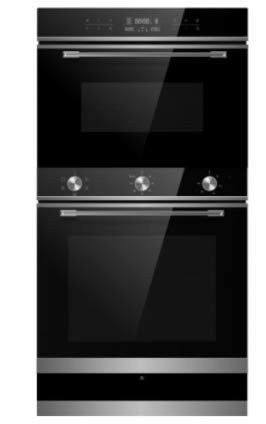The Comprehensive Guide to Sales Ovens: Understanding Their Importance, Types, and Best Practices
Sales ovens, a classification of business cooking devices, are key gamers in the cooking and foodservice industry. These devices, created to prepare food in big amounts efficiently, are necessary in dining establishments, catering services, and other food establishments. This short article digs into the importance of sales ovens, their types, and best practices for choosing and utilizing them successfully.
What Are Sales Ovens?
Sales ovens, broadly defined, are cooking devices utilized mainly in commercial cooking areas to cook, bake, or heat numerous food products at scale. Built In Oven On Sale enables them to handle greater volume cooking compared to standard property ovens. Provided the nature of food service, sales ovens typically integrate sophisticated technologies that promote speed, effectiveness, and even cooking.
Value of Sales Ovens in the Food Industry
Sales ovens play an essential function in food production for lots of factors:
- Efficiency: Sales ovens can cook food faster and equally than conventional ovens, allowing chefs to prepare meals in less time.
- Consistency: With exact temperature controls, sales ovens guarantee that the food is prepared equally each time, keeping quality across countless portions.
- Adaptability: Many sales ovens can manage different cooking techniques consisting of baking, roasting, broiling, and even steaming, making them appropriate for diverse menus.
- Energy Savings: Modern sales ovens are frequently designed to be energy-efficient, decreasing operational costs for services.
Types of Sales Ovens
The marketplace offers a range of sales ovens, each suited for particular cooking requirements and types of food. Here are the most typical types:
| Type of Oven | Description | Best For |
|---|---|---|
| Convection Ovens | Employ a fan to flow hot air, guaranteeing even cooking. | Baking and roasting items. |
| Combi-Ovens | A combination of convection and steam cooking, providing flexibility in cooking approaches. | Varied menus needing steaming and baking. |
| Conveyor Ovens | Use a moving belt to constantly prepare food, ideal for high-volume operations. | Fast food and pizza. |
| Deck Ovens | Function different compartments (decks) that can be independently managed, using high performance. | Craftsmen bread and pastries. |
| Rotisserie Ovens | Developed to gradually roast meat on a spit, providing tender and juicy results. | Roasted meats. |
Picking the Right Sales Oven
Selecting the appropriate sales oven for a specific service needs consideration of several factors:
- Volume Needs: Assess the volume of food that requires to be prepared. Greater volume implies going with conveyor or combi-ovens.
- Menu Diversity: Understanding what kind of meals will be cooked can guide the selection process. For instance, a pastry shop might need a deck oven, while a restaurant may benefit from a convection oven.
- Space Availability: Measure kitchen space to ensure the ovens fit properly and have needed ventilation.
- Budget plan: Commercial ovens can vary considerably in price, so develop a budget plan that thinks about long-term functional cost savings.
- Energy Efficiency: Opt for ovens that have energy scores to keep utility expenses workable.
Best Practices for Using Sales Ovens
Effectively running a sales oven involves more than basic use. Here are some best practices to keep in mind:
- Regular Maintenance: Schedule regular upkeep to clean and examine the performance of the oven. This makes sure durability and effectiveness.
- Preheating: Always pre-heat the oven to the desired temperature before placing food inside for constant cooking results.
- Make use of Thermometers: For accuracy, utilize an oven thermometer to make sure that temperature levels remain constant, especially for baking.
- Follow Cooking Times: Adhere to suggested cooking times based on the type of food being prepared. Changes may be needed for various ovens.
- Avoid Overcrowding: Ensure sufficient space around food products in the oven to allow for proper air blood circulation.
The Future of Sales Ovens
As technology advances, so do the abilities of sales ovens. Developments such as smart technology, energy-efficient designs, and enhanced safety functions are ending up being more prominent. These improvements assure to boost cooking performance while also fulfilling sustainability goals.
FAQs about Sales Ovens
Q1: How do I tidy my sales oven?
A: Regular cleansing includes eliminating any food debris, cleaning down surfaces with non-corrosive cleaners, and following particular cleaning recommendations from the manufacturer.
Q2: What's the life-span of an industrial oven?
A: Typically, a well-kept business oven can last anywhere from 10 to 20 years, depending on use and maintenance.
Q3: Can sales ovens be utilized for baking?
A: Yes, many kinds of sales ovens, specifically convection and deck ovens, are specifically designed for baking a range of products.
Q4: Are there energy-efficient alternatives for sales ovens?
A: Yes, numerous manufacturers use energy-efficient designs that lower energy intake without compromising performance.
Q5: How typically should I conduct maintenance on my sales oven?
A: It's suggested to carry out regular upkeep checks on a monthly basis or quarter, depending upon use levels. Furthermore, Hobs Sales must happen a minimum of annually.
Sales ovens are vital in the contemporary cooking landscape. Their capability to prepare big amounts of food effectively makes them important for dining establishments, catering services, and other food establishments. By understanding the different types, selecting the ideal oven, and adhering to best practices, food service organizations can enhance their cooking processes, improve their offerings, and ultimately thrill their consumers with impressive culinary developments.

